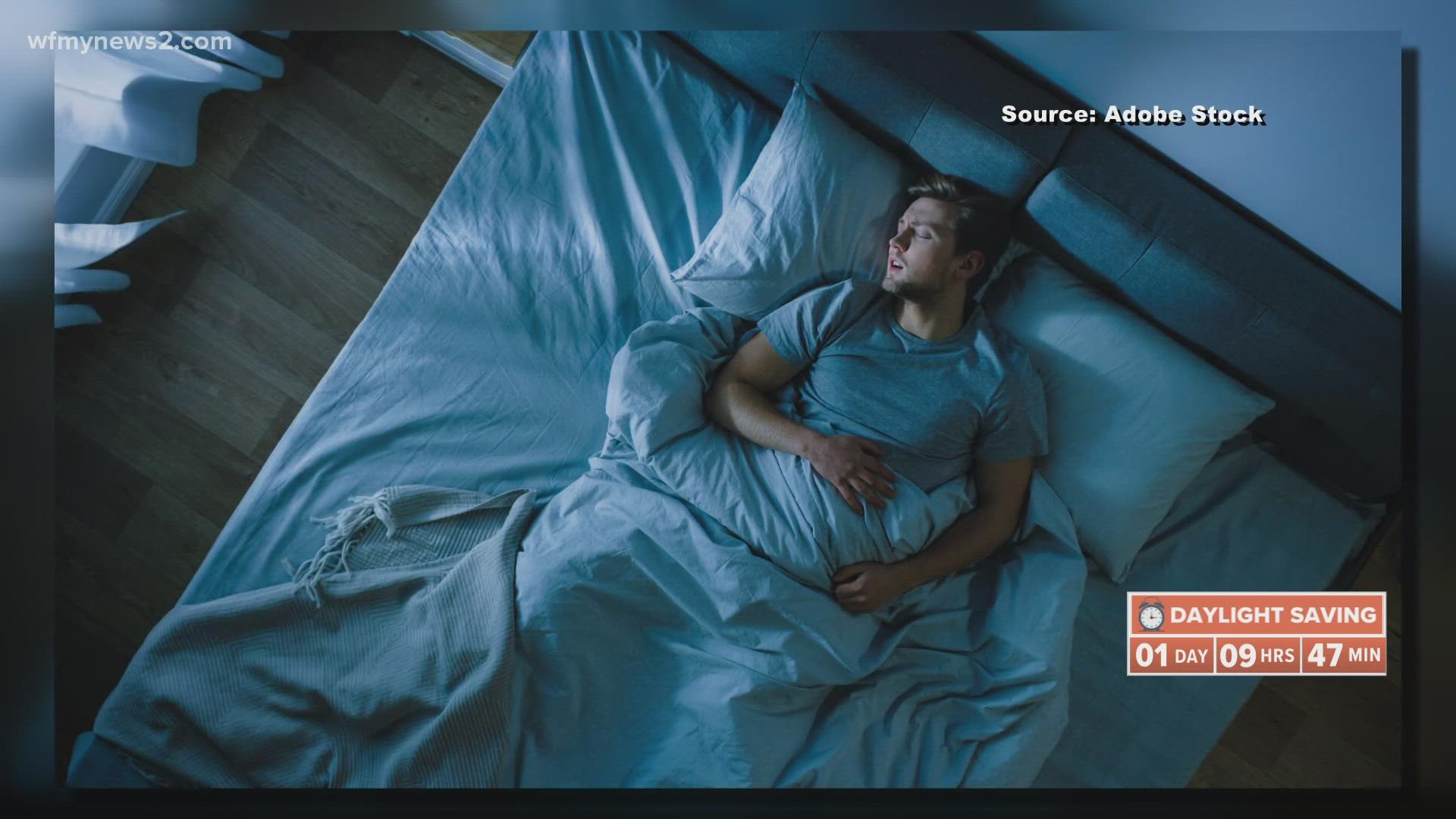GREENSBORO, N.C. — We're getting an extra hour of sleep this weekend as we fall back an hour with daylight saving time ending.
Even though we're thankful for the extra shut-eye, medical professionals said it can still throw off our sleep patterns.
"I think this time of year we get excited because we have this fall back time and we're thinking gaining an hour, we're getting more, but in reality it has an impact on our sleep," Patty Williams, nurse practitioner with Novant Health, said.
Williams said it can take our bodies a couple of weeks to recover just from that one hour time change. She said it's because the time change affects our circadian rhythm which is our natural sleep patterns.
So what can we do to prepare ourselves? Williams suggested going to bed 15 minutes later and waking up 15 minutes later on the days leading up to the time change. After the shift has happened, extra exposure to sunlight can help.
"We want to hibernate and we can't do that," Williams said. "We've got to get up and be active. Morning time is a good time or even at lunchtime, get outside in that sunlight. Light is what plays a big part in our sleep cycle. We wake up during the light, we go to sleep during the darkness. Get outside during the middle of the day where you can get a little bit of that sunlight to help you."
Williams also wants to remind people that adults should get seven to nine hours of sleep a night and kids need about 10.
If you keep your bedtime consistent, drink plenty of water and get moving out in the sunlight, you should be able to fight off the grogginess that comes with daylight saving time.

